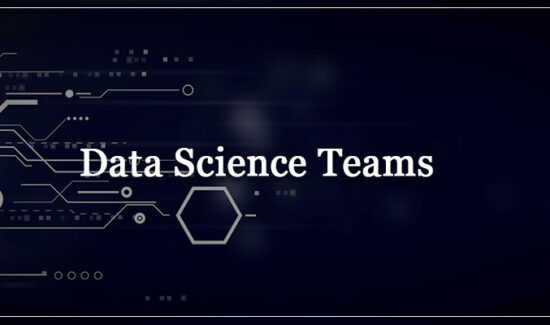Transform Your Enterprise Data Culture With These Three Mindset Shifts

Remember the movie “Office Space?” In the 1999 film, Peter is a disenchanted and overworked software engineer who’s constantly reprimanded for not completing his “TPS reports” — data reports that required inhumane amounts of busy work, including sending the reports around daily with a very specific cover sheet.
Today, knowledge workers should be able to focus on creating value through their work, but in many enterprise data cultures, the data knowledge workers need is not accessible. Data owners are concerned that, if given unfettered access, workers will mishandle that data or, worse, draw inaccurate conclusions and steer their company off a cliff.
In actuality, hoarding data slows organizations down. A lot. In a recent survey of 2,800 data leaders, Alteryx found that the majority of organizations reported not giving decision-makers access to relevant data despite acknowledging that employees make better decisions when this data is made available.
Why? It stems from several misconceptions about enterprise data. Here are three mindset shifts your organization needs to embrace to ensure an enterprise data culture that empowers employees, creates a competitive advantage, and guides strategic decisions.
From need to know to need to share
Likely derived from the military, organizations were built on a ‘Need to Know’ philosophy on sharing data. We can only give you the minimum data possibly needed to solve your problem. In many cases, employees can’t even get what they need to do their jobs. This is rapidly changing, possibly driven by regulators to a ‘Need to Share’ mindset.
What is a ‘Need to Share?’ Imagine you are a bank with many divisions. Each division is siloed and does not share data. In one division, they see that an account holder is deceased and shut down the accounts; however, in another area they weren’t aware, because data wasn’t being shared. A regulator finding this would suggest that the Need to Know likely created a risk that if the data had been shared would have been reduced.
In its decision intelligence survey, Alteryx found that 65 percent of respondents didn’t believe employees who made decisions for the organization should have access to data for decision-making. It seems paradoxical, but it stems from fear. And admittedly, while some of it is merited, some is not.
In democratized analytics, the people asking for access to data, in general, are those that should have access to it. A finance person is asking for financial data. A marketing person is requesting marketing data. And while there are some requests that certainly are not appropriate and should be scrutinized, my experience is that most requests are for legitimate purposes and should be allowed.
In that sense, organizations’ anxieties around data mishandling are stimying valid and essential use cases. The fix is simple. Implement safeguards. Give line of business workers access to the appropriate data and only the appropriate data. And finally, give knowledge workers the training and know-how to successfully handle data by promoting data literacy and cybersecurity awareness.
Trust your subject matter experts
The second misconception is the one I mentioned earlier, the concern that knowledge workers will misuse their data. They’ll divide when they should have multiplied or multiply when they should have divided, eventually making crucial decisions based on wildly inaccurate numbers.
We can compare this fear to giving a tax accountant a scientific calculator. Are we afraid our tax accountant is going to push random buttons on the calculator and enter that number into a tax form? Not at all. Rather, we have a fundamental trust that they know the numbers they’re looking for and know how to find them. And more importantly, they know what buttons they are comfortable using on the calculator and will seek help if they need to learn about a button they have yet to learn about.
In the same vein, the finance professional asking for data is going to know what the numbers for accounts receivable should look like. They have an intricate understanding of accounting principles that data scientists simply don’t have. With access to the right technology, finance professionals can pivot their data 20 different ways to quickly get answers to the questions that they need answers to as opposed to if that data were in a PDF or in a massive binder. When we give subject matter experts access to the data they need, they help drive the organization forward with strategic, intelligent decisions.
The reality is that in most organizations, when the domain expert requests that a centralized Data Engineer or other technical resource pull data and manipulate it for them, there is a very real need for the domain expert to check the results to ensure they got the right answers. In many cases, this is an iterative process, as the centralized resources typically do not know the data as well as the domain expert, nor do they know the required manipulations the business requires. This illustrates even more the need for the domain experts to be able to touch the data directly versus playing the ‘telephone game’ to get answers.
Embrace automation (it’s already here!)
Automation is certainly coming, and in fact, arrived a long time ago. The use of automation to decrease the amount of mundane, repetitive work and free-up knowledge workers to do more creative and strategic things has been well underway in every domain and industry. This trend appears to only be accelerating, and to remain relevant as a business and as a knowledge worker, the only option is to embrace it.
Companies that leverage automation and analytics outperform those that use it less – and by a wide margin – a Harvard Business Review study found that companies that lead in data and AI adoption outperformed their peers across a wide variety of metrics, including operational efficiency, revenue, customer loyalty, and employee satisfaction. Also, individuals who have these skills outearn peers that have not embraced the technology. The good news is that leveraging these capabilities can be easily done and the ROI can be incredibly fast.
Unlock the full value of your data
Data shouldn’t be hoarded like a dragon’s treasure. And it shouldn’t be packaged into mindless reports, even with the right cover sheet. For organizations to reach their full potential and make intelligent decisions, knowledge workers require increasing levels of data access. With the right technology and governance, making data available for everyone will help your organization find insights much faster than the other guys keeping their data locked up in a vault.

















